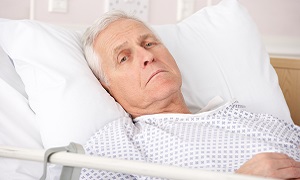Best Doctors in India for Sigmoidoscopy
Best Hospitals in India for Sigmoidoscopy
- City: Mumbai, India
Hospital Highlights:
- Fortis Hiranandani hospital was established in 2007.
- The hospital is an advanced tertiary care, multi-specialty hospital equipped with 149 beds.
- The hospital is equipped with a super ICU to provide emergency medical care to critically ill patients.
- The hospital is NABH accredited.
- The critical care facility in the hospital is augmented with the state-of-the-art facilities that facilitate speedier diagnosis and efficient monitoring.
- The hospital provides specialty medical services in cardiology, orthopedic science, pediatric science, neurology, diabetic care, urology, nephrology, ENT, obstetrics, gynecology, cosmetic surgery, bariatric surgery, neuro and spine care.
- City: Gurugram, India
Hospital Highlights:
- W Pratiksha Hospital, Gurugram, is one of the best hospitals in the NCR region. It is also a top hospital in India for IVF. Since its inception, the hospital has performed over 5500 successful IVFs. The hospital also specializes in gynecology.
- With over 20 years of experience in providing quality healthcare, the hospital is known as one of the most trusted and valued health providers in India.
- Equipped with world-class medical facilities and advanced technology, the hospital’s doctors and clinicians also have a track record of delivering excellent results. The hospital is also known for focusing on preventive well-being as much as on curative treatment.
- The hospital has earned the trust of its patients, by providing the best available treatments at affordable costs.
- City: Gurugram, India
Hospital Highlights:
- Paras hospital was established in 2006 and is the 250 bedded flagship hospital of Paras Healthcare.
- The is supported by a team of doctors of international and national repute.
- The hospital is NABH accredited and also the first hospital in the region to have a NABL accredited laboratory.
- The hospital provides specialty medical services in around 55 departments including Neurosciences, Joint Replacement, Mother & Child Care, Minimal Invasive Surgery, Gynecology and Obstetrics, Ophthalmology, Dermatology, Endocrinology, Rheumatology, Cosmetic and Plastic surgery.
- The hospital is equipped with state-of-the-art technologies.
- City: Kolkata, India
Hospital Highlights:
- Fortis Hospital, Anandapur, Kolkata is a world-class super-speciality equipped with the latest technologies in the medical world.
- The hospital is NABH accredited.
- This state-of-the-art facility specializes in cardiology and cardiac surgery, urology, nephrology, neurosciences, orthopaedics, digestive care, emergency care and critical care.
- The hospital, governed by integrated Building Management System (IBMS), has a pneumatic chute system, for quick vertical and horizontal transportation between floors, facilitating speedy transfer of patient specimens, documents, reports, and medicines to the concerned departments.
- The hospital also has a nephrology department with over 28 advanced dialysis units.
- City: Mumbai, India
Hospital Highlights:
- SL Raheja hospital is a 140-bed multi-specialty tertiary care hospital that is being managed by Fortis Healthcare Ltd.
- The hospital is a benchmark in healthcare and medical facilities in the neighborhood of Mahim & the western suburbs.
- L.Raheja Hospital, Mahim has one of the most effective ICU and Casualty care services.
- The hospital provides specialty medical services in Cardiology, Oncology, Neurology, Orthopedics, Mother & Child Care, and in Diabetes.
- City: Mumbai, India
Hospital Highlights:
- Wockhardt Hospitals were established in the year 1973, originally called First Hospitals and Heart Institute.
- Wockhardt Hospitals are super specialty health care networks in India, nurtured by Wockhardt Ltd, India’s 5th largest Pharmaceutical and Healthcare company.
- Wockhardt Hospitals is associated with Partners Harvard Medical International, an international arm of Harvard Medical School, USA.
- Wockhardt Heart Hospital performed India’s first endoscopic heart surgery.
- The hospital has a state-of-the-art infrastructure equipped with the latest technologies and modern equipment.
- It has special Centers of Excellence dedicated to the major specialties to provide hassle-free and high-quality clinical care.
- City: Gurugram, India
Hospital Highlights:
- The CK Birla Hospital in Gurugram is a NABH-accredited multi-specialty hospital.
- The hospital strives to increase the quality of healthcare by focusing on UK NHS nurse and midwife training requirements. Policies and practices derived from the National Institute for Health and Treatment Excellence (NICE) recommendations in the United Kingdom ensuring that a strong focus on safety, high-quality clinical care, and sanitation is maintained.
- The hospital’s cutting-edge technology and facilities allow for real-time communication and seamless collaboration among caregivers, ensuring accuracy and the best possible results. Those with foreign experience and accreditations make up part of the hospital’s team of clinicians.
- City: Ahmedabad
Hospital Highlights:
- As a member of the Apollo Hospitals Group, Apollo Hospitals International Limited, Ahmedabad is one of the most popular and sought-after medical facilities in Gujarat.
- Through its 6 Centres of Excellence and various affiliated branches, which cover all specialties and subspecialties, the hospital provides the most advanced clinical services.
- Since its inception in 2003, the hospital has been providing each patient with the most up-to-date medical equipment and state-of-the-art technology.
- With more than 150 successful organ transplants, including liver and renal transplants, the facility has been able to build a strong and extensive organ transplant program.
- In addition to performing 600 surgeries and caring for over 1800 patients on an IP basis, the hospital sees more than 18,000 patients on average in the outpatient department.
- With one of the biggest cardiology teams in the area, the hospital provides state-of-the-art regional care treatment in Cardiac Sciences.
- Additionally, the hospital offers a broad range of Neuro Interventional techniques to help stroke patients recover more quickly.
- City: Noida, India
Hospital Highlights:
- Jaypee Hospital is the flagship hospital of the Jaypee Group.
- This hospital has commissioned 525 beds in the first phase and has been planned and designed as a 1200 bedded multi-specialty facility.
- It holds the accreditation of the NABH and NABL.
- The hospital has state-of-the-art infrastructure equipped with the latest technologies and modern equipment like 64 Slice PET CT, Dual Head 6 Slice SPECT CT, Gamma Camera, and Da Vinci Robotic Surgery for comprehensive robotic surgical solutions.
- It has special Centers dedicated to the major specialties to provide hassle-free and high-quality clinical care.
- City: Mumbai, India
Hospital Highlights:
- Reliance Hospital is one of the best super-specialty care hospitals in Navi Mumbai.
- The main purpose of this hospital is to become a trustworthy place for the best health and hope for society. The hospital is well connected to the suburbs of Mumbai and Navi Mumbai.
- The hospital has various specialty departments, viz., Accident & Emergency, Anesthesiology, Dental Services, Dermatology, Diabetology, Dietetics Nutrition, Endocrinology, ENT, Gastroenterology, General Surgery, Gynaecology And Obstetrics, Hepato Pancreato Biliary Surgery, Infectious Disease, Internal Medicine, Interventional Radiology, Laboratory Medicine, Minimal Access Laparoscopic Surgery, Nephrology, Neurosciences, Opthalmology, Orthopaedics, Paediatrics, Pain Management Palliative Care, Physical Medicine Rehabilitation, Plastic And Reconstructive Surgery, Psychiatry, Pulmonary Medicine, Radiology, Rheumatology, Transplant, Urology Andrology, Vascular Surgery
Sigmoidoscopy
Sigmoidoscopy is a test where your doctor examines the rectum and lower part of the colon. The colon is your large intestine and its lower part is known as the sigmoid colon. The sigmoid colon ends in your rectum, where the waste is collected before it leaves your body when you are having a bowel movement.
Sigmoidoscopy, which is also termed as flexible sigmoidoscopy, can help your doctor to look for ulcers, cancer, polyps or abnormal cells. In this procedure, typically tissues are taken as samples for checking for any abnormal changes in the cells.
Purpose
Sigmoidoscopy can help your doctor investigate possible causes of abdominal pain, changes in bowel habits, rectal bleeding, chronic diarrhea or any other problems related to the intestine.
If you are over 50 years of age, it puts you at average risk for colon cancer, which is why your doctor may recommend a flexible sigmoidoscopy exam every five years to screen for colon cancer.
Though sigmoidoscopy helps in screening for colon cancer screening, there are other options as well, which can allow your doctor to view the whole colon, such as colonoscopy.
Occasionally, sigmoidoscopy is preferred over colonoscopy as it takes lesser time, and doesn’t require an anesthetic. There are also lower risks.
Preparation
Before going through a sigmoidoscopy exam, it is important to empty your colon. If there is any residue in your colon, it can obscure the view of your colon and rectum during the procedure.
To empty your colon, it is important to carefully follow your doctor’s instructions. Your doctor might ask you not to consume any food the day before you undergo the exam. Instead, you can consume plain water, carbonated beverages, broth as well as tea and coffee without any milk or cream. The doctor may also ask you not to eat or drink anything after midnight the night before your exam.
Your doctor may ask you to take a laxative, which will be either in pill or liquid form.
You will also need to use an over-the-counter enema kit, typically a few hours before the exam, for emptying your colon. You might also be asked to take two enemas.
If you take medications or supplements, remind your doctor about them at least a week before the exam. You may need to temporarily stop the medications or adjust the dosages for some time.
Procedure
You’ll need to wear a gown and begin the exam lying on your left side on the exam table. Then you need to draw your knees toward your abdomen. Then the sigmoidoscope, which is a thin and flexible tube, will be inserted into your rectum. The tube has a light as well as a very small camera on the end, which helps images to be transmitted onto a monitor for the doctor to see. The tube also inflates your colon with some air, making it easier for your doctor to examine.
Please note that when the scope is moved or air is introduced, you might experience abdominal cramping or the urge to move your bowels.
This exam should take around 15 minutes. If biopsies are taken, it may require slightly more time. Usually, sedation and pain medications aren’t required. If a polyp is found, your doctor might recommend a full colonoscopy to examine the entire colon, as there might be other polyps present further up in the colon.
After the procedure
After the exam, you should be able to return to your usual diet and activities. However, you might experience mild discomfort after the exam. You might feel bloated or pass gas for some hours as the air is cleared from your colon. Walking should help relieve the discomfort.
You might also notice a little blood with your first bowel movement after the exam, for which there is no reason to worry. You can consult your doctor if you continue to pass blood or blood clots or if you experience persistent abdominal pain or a fever of 100 F or higher.
If your results are negative, that means your doctor hasn’t found any abnormalities in your colon. If you’re above fifty years of age, then you may be at average risk of colon cancer. So your doctors can recommend the exam again after five years.
If your results are positive that means your doctor found polyps or abnormal tissues in your colon. You might require additional testing, such as colonoscopy, depending on the findings. The abnormalities will be examined more thoroughly, biopsied or removed.












